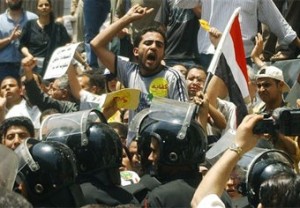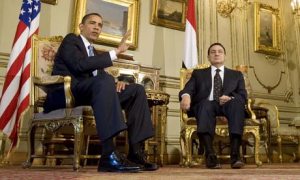President Obama Spends Six Days “Mending Fences” in Europe …by Roger Caldwell.
Category: Egypt
There is a shift taking place in the world economy, and the United States must make friends with those we considered enemies. China, Japan, and India are the richest countries in the world behind America, and we are forced economically to make financial agreements. Many European countries are starting to think that U.S. is more concerned about its relationship with other countries, as opposed to them.
Last week President Obama, his wife Michelle, and his administrative team made a
six-day, four-nation tour to Europe. The purpose and focus of the trip was to discuss a broad range of economic and security matters as well as reaffirm our friendship and solidarity with the European countries.
The trip began in Ireland where President Obama has family roots, and was well received with large crowds lining the streets to welcome him. Everywhere he went in small villages or large cities, he was warmly greeted. His message for the Irish was inspirational despite current economic troubles; “we both will weather the storm and come out better.”
The next two days were spent in England, where President Obama made his first official state visit, where there was ceremony, and a special formal dinner. The president was given the opportunity as the first American president to address both the House of Commons and the House of Lords in Westminster Hall with a speech.
During the formal evening dinner, President Obama stated, “Our relationship rest on common language, common history, and common adherence to the rule of law, the rights of men and women, and our relationship never rests.” It was obvious that throughout the president’s visit in England, he emphasized the “special relationship” that the two countries have and they must continue to work together.
In a joint interview in the Times Newspaper in London, President Obama and Prime Minister Cameron said they are committed to working together “on rebuilding our economies.” “We are two different countries but our destination must be the same: strong and stable growth, reduced deficits and reform of our financial systems,” they wrote.
The next stopover during the president’s trip was a visit to France. In France, he was given an opportunity to meet with the Group of Eight nations(G8), which includes the United States, the United Kingdom, France, Canada, Japan, Germany, Italy, and Russia.
The goal of these nations is to be a catalyst for action, and collaborate economically and militarily. At the conclusion of the G8 Summit, the leaders issued a statement expressing support for the democratic uprising in the Middle East and North Africa. The leaders also asked senior foreign and finance ministries to meet in coming months to forge a framework of unity and continuity. They also are planning to help Egypt and Tunisia to recover stolen assets, and praised economic political development in both countries.
The final stop on the president’s European trip was in Poland. In Poland, President Obama met with Poland’s President Bronislaw Komorowski, and assured him that the U.S. contacts with Russia will not come at the expense of the security of Poland. Our president is holding Poland’s transformation to democracy as a model for the world.
Strategically, the European trip was extremely important to the United States and the countries that that President met with during the six day trip. There is an economic recession in many of these countries, and there is a need for an international bailout. This trip was the initial discussion of a global plan and more meetings will be necessary to resolve the different global problems.
In order for the United States to be economically successful, we need the European nations. President Obama reassured the European nations that strategically we are strong allies, but because of the global recession, America cannot afford to pay the global bills without more help.










